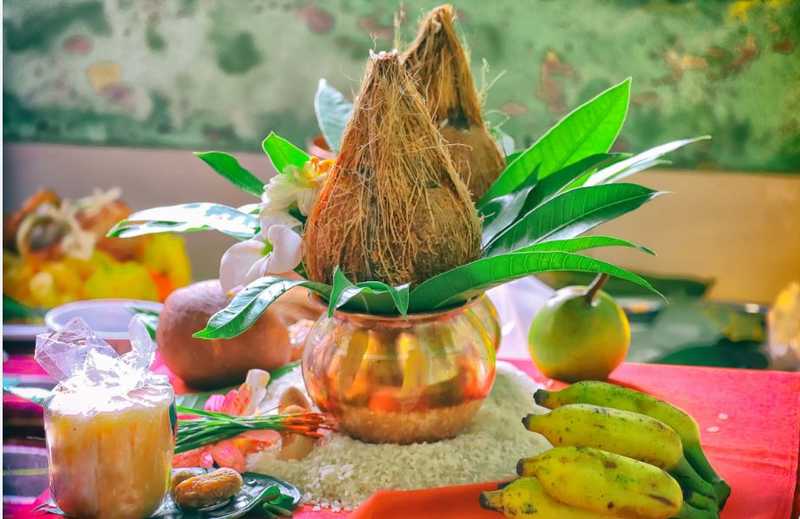Vastu tips for the house warming or Griha pravesh
 Griha Pravesh or house warming holds a prominent significance in the ancient vastu texts and is an essential aspect of vastu shastra. Since Griha pravesh symbolizes the first entry of house inmates in the house for living, the auspicious moment is usually decided in conjunction with Vedic astrology and vastu shastra. Griha pravesh ceremony is conducted to ward off any evil or negative energies purifying the newly constructed house and tuning it to match the wavelength of its inmates.
Griha Pravesh or house warming holds a prominent significance in the ancient vastu texts and is an essential aspect of vastu shastra. Since Griha pravesh symbolizes the first entry of house inmates in the house for living, the auspicious moment is usually decided in conjunction with Vedic astrology and vastu shastra. Griha pravesh ceremony is conducted to ward off any evil or negative energies purifying the newly constructed house and tuning it to match the wavelength of its inmates.
According to ancient Holy Scriptures, griha pravesh is essentially sub divided into three categories.
The first amid these is the Apoorva Griha pravesh. Apoorva griha pravesh is conducted when any new construction is carried out or a new piece of land or plot is selected.
The second division of griha pravesh is the Sapoorva griha pravesh. A griha pravesh is said to be Sapoorva when the inmates already living in the house are moving back in it after a prolonged period. The prolonged period could be because of migration to a different city or country or travel. Griha pravesha ceremony conducted for any house where residents had lived earlier comes under this category.
The third griha pravesha category known as the Dwandwa is when inmates enter the house after reconstruction or renovation. Any renovation work done due to natural calamities like floods, fire, earthquakes also comes under the Dwandwa griha pravesha category.
A holistic puja ceremony is conducted after ascertaining the right muhurata for all griha pravesh ceremonies. The mandala of figure of the eternal vastu demi god is drawn to invoke the blessings of vastu and the associated nine planets of astrology. A havan is conducted purifying the space and ambience of the house cleansing it of any prevalent negative forces. The smoke from the havana is carried to all rooms of the house and its adjoining open spaces by the family members or inmates. After the havan ceremony, the newly constructed house is encircled with a scared thread three times starting from the auspicious eastern corner. The threads are tied as a protective measure to avoid any evil cast or negative forces to disrupt the harmony of the house and its inmates.
Griha Pravesha must be accomplished during the day time unless specifically advised by the astrologer calculating the best muhurat for pravesha. The Hindu lunar months of Magh, Phalgun, Baisakh and Jeshta are considered to be most auspicious for any griha pravesha ceremony. Griha pravesha is forbidden in the moths of Ashadh, Sharavn, Bhadrapad and Ashwin paush.







